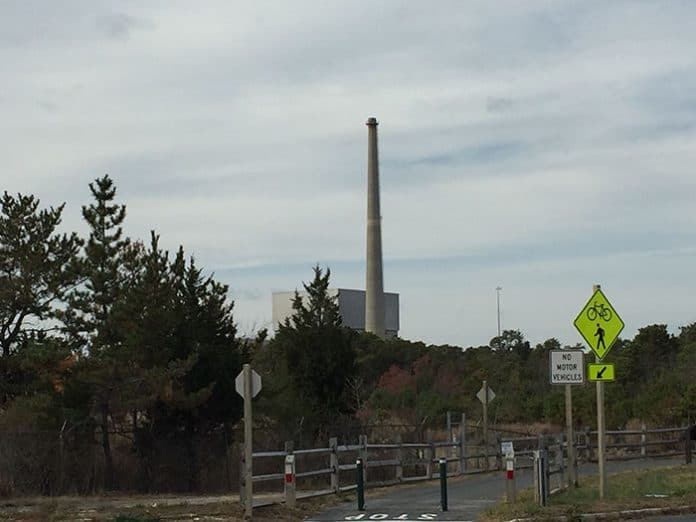
FORKED RIVER – The Oyster Creek Generating Station reduced power, declaring an “Unusual Event” on Saturday, Jan. 6 when unusually low tides and high winds affected the water levels in the bay.
These altered environmental conditions affected the plant’s intake canal, officials said. The minimal water levels caused the plant’s operators to reduce power to 70 percent within the plant.
The cause of this “Unusual Event” was really a function of both the low tides combined with the storm that passed through this past weekend, said Neil Sheehan, Spokesman for the Nuclear Regulatory Commission.
“They [the Oyster Creek operators] have parameters for the water levels and water intake,” he said. When the water levels got too low, the operators reacted by reducing the power in the plant.
Water, coming from the Barnegat Bay, flows through the creek and is used for the plant’s cooling processes. This water goes through the plant, cooling the reactors, and comes back out into the creek at a higher temperature, he said. The water is involved in a nonradioactive cooling process, which means that when it comes out the other side, it is not contaminated.
When the water levels became too low, the operators needed to make an adjustment to accommodate this. Reducing the power of the plant to 70 percent meant that the plant then needed less water to operate, said Sheehan.
The plant declared the “Unusual Event” early Saturday morning and stayed in this state until the next day. “Really what an ‘Unusual Event’ declaration does is let people know that something is out of the ordinary,” he said.
An “Unusual Event” is the lowest of four different emergency classifications determined by the US Nuclear Regulatory Commission (NRC). Sheehan noted, however, that there were no effects on the public’s health and safety despite this emergency warning.
The plant was powered back up and running regularly again by Sunday.






